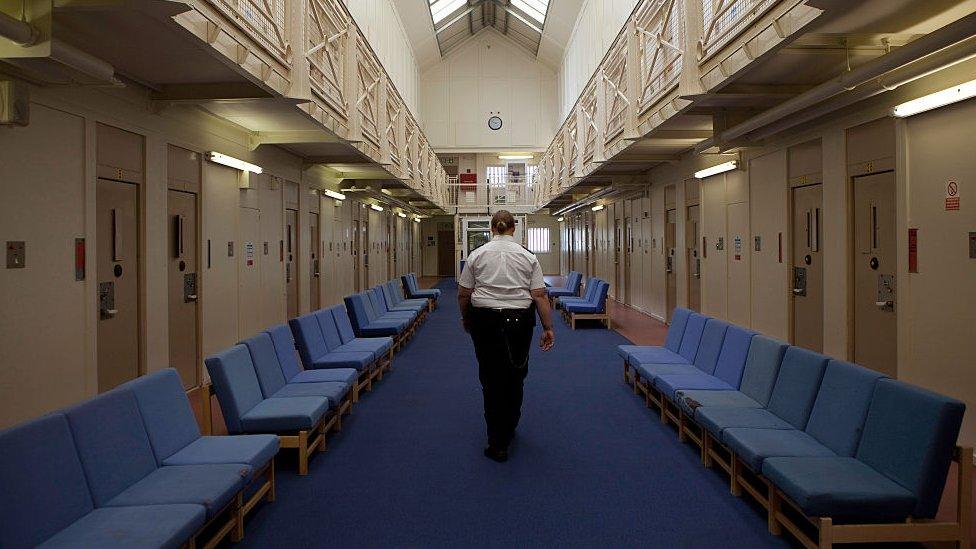Up to 500 new cells to be built in women's prisons
- Published

Up to 500 new prison cells are to be built in women's jails, the Ministry of Justice has announced.
These will be built in existing women's prisons to increase the number of single cells available and improve conditions.
They will include in-cell showers, and some will enable women to have overnight visits with their children to prepare for life at home after release.
In future, older cells could also be shut if the prison population reduces.
The Ministry of Justice (MoJ) has also pledged almost £2m in funding to 38 charities so their "vital work in steering women away from crime can continue".
This may include addressing mental health problems and drug use, both of which affect around half of women in prison.
Prisons minister Lucy Frazer said: "This funding boost will allow frontline services to continue the incredible work they do with some of the most vulnerable women in our society to prevent them being drawn into crime."
Announcing the funding, the government reiterated its promise to cut the number of women in custody and provide effective support to deal with problems which could lead to crime in the first place or reoffending.
But it admitted there could be a temporary rise of inmates in the near future as the number of investigations and prosecutions is expected to increase amid the hiring of 20,000 more police officers.
It added that the number of women in custody has fallen by 10% since 2010 and stressed that government investment in community services should see this trend continue in the long-term.
If the number of women in prison falls longer term, the MoJ says the new modern facilities will allow the Prison Service to close old accommodation.
Campaigners largely welcomed the announcement, but warned the efforts do not go far enough to tackle longstanding problems.
Kate Paradine, chief executive of charity Women in Prison, said: "This pledge and funding are just the start, and a far cry from what is needed in order to provide stability for women who face the sharp end of our society."
She called on the government in its upcoming Budget to safeguard the future of women's centres, which she described as an "anchor that stop women being swept up into crime" but warned were "facing a funding cliff edge in April".
Emily Evison, policy officer at the Prison Reform Trust, said the plans would need to be backed up by "action on the ground to prove effective", adding: "Instead of planning for a rise (in women prisoners), the government should redouble its efforts to ensure women are not being sent to prison to serve pointless short sentences."
Andrew Neilson, director of campaigns at the Howard League for Penal Reform, said: "If the goal is to reduce the number of women entering the criminal justice system, then today's announcement shows that ministers are looking at the issue down the wrong end of a telescope", claiming the funding promised was "dwarfed" by the cost of the extra prison places.